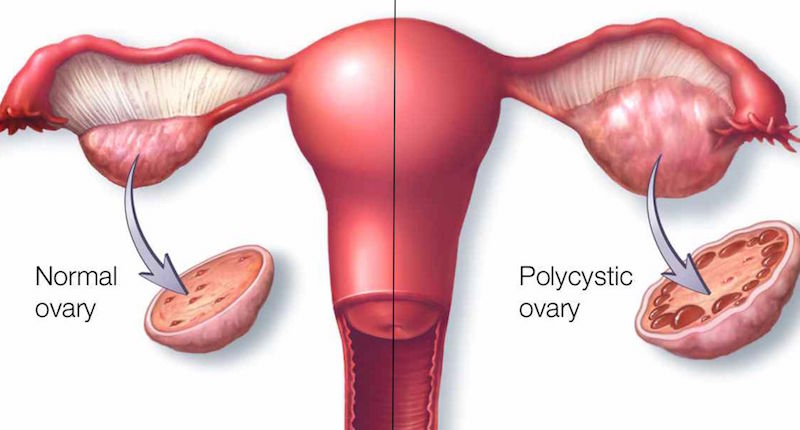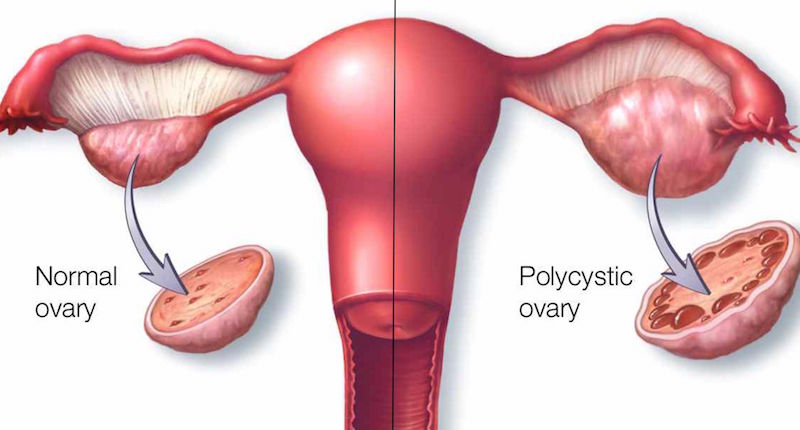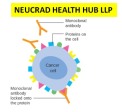Stress and Polycystic Ovarian Syndrome (PCOS)

Kartik Chandra Guchhait, Senior Research Fellow (SRF) ; Vidyasagar University, Midnapore-721102, West Bengal, India, November 22,2021
Polycystic ovarian syndrome (PCOS) is the common endocrinal and reproductive disorder that affects more than 10% women of reproductive age. Several factors like genetic, environmental and lifestyle factors are responsible for developing this syndrome (1). It is heterogenous in nature. Common features of this syndrome are oligo‑ovulation or an ovulation, clinical and/or biochemical signs of hyperandrogenism, and polycystic ovaries. According to the Rotterdam consensus any two of these hallmarks are needed to be called it as PCOS. Several metabolic consequences are also linked with this such as increased risk of visceral obesity, insulin resistance, type 2 diabetes mellitus, and premature atherosclerosis (2).
Stress is a common factor for leading several disease pathogeneses in the modern lifestyle. Interestingly, reproductive dysfunction is also associated with the increased stress. Stress‑induced anovulation leads to infertility (3). There are increasing reports stating the role of stress in PCOS manifestation. Studies indicated that stress‑associated factors are positively associated with body composition alterations in PCOS. Although Salivary α‑amylase (SAA) and cortisol are considered as sensitive biomarkers during the stress-induced alteration in human, but there is no reported association between these biomarkers with the changes of body composition linked with PCOS. Reactive oxygen species (ROS) caused by oxidative stress and increased inflammatory markers are also responsible for the PCOS symptoms. Imbalance between antioxidants and pro-oxidants potentiates the severity of PCOS. During the stressful situation, the oxidant status is highly notes at low serum anti-oxidant level among PCOS women. Advanced oxidation protein products (AOPPs) Stress impairs the cardiovascular health Patient’s personal medical history, complete physical and gynaecological examination should be followed before the treatment of PCOS. Several diagnostic tests like blood sample, Ultrasonography (USG) and hysteroscopy are also helpful. Anti-mullerian hormone (AMH), which remains in consistent during the normal menstrual cycle, its level increases to 2-3 folds in case of infertility condition (4). This high AMH levels are thought to be associated with the severity of PCOS. Several studies reported that intake of N-acetyl-cysteine (NAC) could restore the level of anti-oxidant glutathione ,improves in insulin secretion (thereby maintains normal insulin circulation) and improves peripheral insulin resistance among PCOS women(3). Lifestyle modification with proper diet and adequate exercise should be the prior strategy along with the medication in management of PCOS.

References:
- Chattopadhayay R, Ganesh A, Samanta J, Jana SK, Chakravarty BN, Chaudhury K. 2010. Effect of follicular fluid oxidative stress on meiotic spindle formation in infertile women with polycystic ovarian syndrome. Gynecologic and obstetric investigation.69(3):197-202.
- Collée J, Mawet M, Tebache L, Nisolle M, Brichant G. (2021). Polycystic ovarian syndrome and infertility: overview and insights of the putative treatments. Gynecological Endocrinology. 2:1-6.
- Hyderali BN, Mala K. (2015). Oxidative stress and cardiovascular complications in polycystic ovarian syndrome. European Journal of Obstetrics &Gynecology and Reproductive Biology. 191:15-22.
- Basu BR, Chowdhury O, Saha SK. (2018). Possible link between stress-related factors and altered body composition in women with polycystic ovarian syndrome. Journal of human reproductive sciences. 11(1):10-18.








